I can't propper map DB tables with JPA annotation.

Tables Subject and Place is ManyToMany through JoinTable.
Subject.java
@Entity
@Table(name = "SUBJECT")
public class Subject implements Serializable {
@Id
@Column(name = "SID")
private Integer sid;
@Column(name = "NAME")
private String name;
// getters and setters
}
SubjectPlace.java
@Entity
@Table(name = "SUBJECT_PLACE")
public class SubjectPlace implements Serializable {
@Id
@Column(name = "SPID")
private Integer spid;
@ManyToOne
@JoinColumn(name = "SUB_KEY") //Subject FK
private Subject subject;
@ManyToOne
@JoinColumn(name = "PLC_KEY") //Place FK
private Place place;
// getters and setters
}
Place.java
@Entity
@Table(name = "PLACE")
public class Place implements Serializable {
@Id
@Column(name = "PID")
private Integer pid;
@Column(name = "NAME")
private String name;
@ManyToMany(fetch = FetchType.LAZY, cascade = CascadeType.PERSIST)
@JoinTable(name = "SUBJECT_PLACE",
joinColumns = { @JoinColumn(name = "PLC_KEY", nullable = false, updatable = false) },
inverseJoinColumns = { @JoinColumn(name = "SUB_KEY", nullable = false, updatable = false) })
private Set<Subject> subjects;
// getters and setters
}
But than I need to link Person with Subject in selected Places. I mean that each Place has its own collection of Subject. And a Person have link to Subject whitch resides in particular Place.
like This:
Subject (M) -- (M) Place through JoinTable Subject (1) -- (M) Subject_Place (M) -- (1) Place
Person (M) -- (M) Subject_Place through JoinTable Person (1) -- (M) Person_Subject_Place (M) -- (1) Subject_Place
Person.java
@Entity
@Table(name = "PERSON")
public class Person implements Serializable {
@Id
@Column(name = "PRSID")
private Integer prsid;
@Column(name = "NAME")
private String name;
// How to annotate this code?
// I experience problem in this part of code
@OneToMany
@JoinColumn(name="SPID_KEY")
private List<SubjectPlace> subjectPlaces;
// getters and setters
}
PersonSubjectPlace.java
@Entity
@Table(name = "PERSON_SUBJECT_PLACE")
public class PersonSubjectPlace implements Serializable {
@Id
@Column(name = "PSPID") // Person_Subject_Place ID
private Integer pspid;
@ManyToOne
@JoinColumn(name = "PER_KEY") //Person FK
private Person person;
// How to annotate this code?
// I experience problem in this part of code
@ManyToOne
@JoinColumn(name = "SPID_KEY") //Subject_Place FK
private SubjectPlace subjectPlace;
// getters and setters
}
And when I try so get Persons and its Subjects, I get this error:
Caused by: org.hibernate.MappingException: Foreign key (FK2C3B79384AABC975:PERSON_SUBJECT_PLACE [SPID_KEY])) must have same number of columns as the referenced primary key (SUBJECT_PLACE [PLC_KEY,SUB_KEY])
What, How shoul I map?